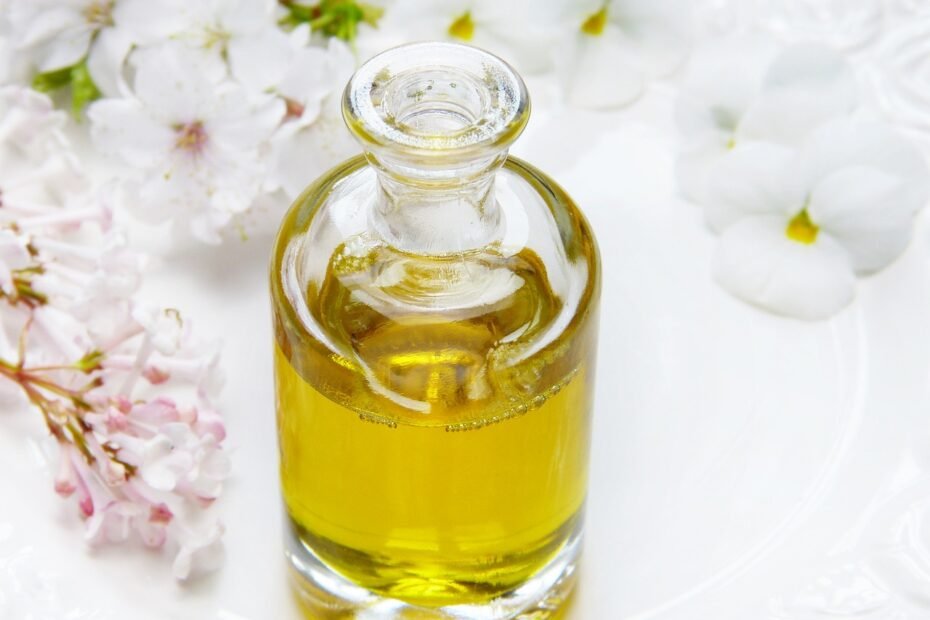In the quiet hours of the early morning, as the city sleeps and the first light of dawn creeps through the curtains, Mark, a long-time sufferer of plantar fasciitis, tiptoes around his bedroom, dreading the familiar sharp pain that greets his first steps. It’s a scenario many can relate to, the relentless discomfort of plantar fasciitis turning every footstep into a potential ordeal. Desperate for relief, Mark stumbled upon an old remedy his grandmother used to mention – castor oil. Skeptical but willing to try anything, he began applying it nightly, hoping for even a sliver of relief. This is the story of many who have turned to traditional remedies, like castor oil, in their quest to find relief from the persistent pain of plantar fasciitis.
Understanding Plantar Fasciitis
Plantar fasciitis is the inflammation of the plantar fascia, a thick band of tissue that connects the heel to the toes. This inflammation can result from excessive running, walking, or standing, especially on hard surfaces. Certain factors, such as high arches, flat feet, tight calf muscles, and obesity, can contribute to the development of plantar fasciitis. In addition, wearing unsupportive shoes with inadequate arch support or stiff soles can also increase the risk of experiencing plantar fasciitis. It is important to understand the causes and symptoms of plantar fasciitis to find an appropriate and effective treatment.

Introduction to Castor Oil
One natural remedy that is gaining attention for its potential benefits in the treatment of plantar fasciitis is castor oil. Castor oil has been used for centuries for its various medicinal and therapeutic properties. It is known for its anti-inflammatory, pain-relieving, and healing capabilities, making it a promising option for individuals seeking relief from plantar fasciitis discomfort. In the following sections, we will explore the origin and extraction of castor oil, as well as its traditional uses and how it can benefit individuals with plantar fasciitis.
Origin and Extraction of Castor Oil
Castor oil is derived from the seeds of the castor oil plant, scientifically known as Ricinus communis. The castor oil plant is native to the Mediterranean region, Eastern Africa, and India and has a long history of use dating back to ancient civilizations. In ancient Egypt, castor oil was prized for its laxative properties and was also used in the treatment of skin inflammation and other ailments.
In India, castor oil has been an integral part of Ayurvedic medicine for centuries and is valued for its numerous therapeutic benefits. Today, castor oil is extracted from the seeds of the castor oil plant through a process of cold-pressing or solvent extraction, preserving its natural compounds and properties.
Traditional Uses of Castor Oil
Throughout history, castor oil has been used for various medicinal and therapeutic purposes. In traditional medicine, castor oil is well-known for its laxative effects and is often used to alleviate constipation. It is also valued for its anti-inflammatory properties and is applied topically to address skin inflammation and related discomfort. Additionally, castor oil has been used on the scalp to promote hair growth and improve the health of the hair and scalp. These traditional uses of castor oil showcase its versatile nature and potential benefits for promoting overall well-being and addressing discomfort.

Beneficial Properties of Castor Oil for Plantar Fasciitis
Castor oil possesses several properties that can be beneficial for individuals with plantar fasciitis. It is known for its anti-inflammatory benefits, pain-relieving properties, and healing capabilities. By harnessing these properties, castor oil can help reduce inflammation, alleviate pain and discomfort, and promote the natural healing of the plantar fascia.
In the following sections, we will delve deeper into these specific benefits of castor oil and how they can contribute to the relief and management of plantar fasciitis.
Anti-Inflammatory Benefits of Castor Oil
One of the key benefits of castor oil for plantar fasciitis is its anti-inflammatory properties. The ricinoleic acid found in castor oil is known for its potent anti-inflammatory effects, which can help reduce inflammation and swelling in the plantar fascia. By addressing inflammation, castor oil can alleviate pain and discomfort associated with plantar fasciitis.
Furthermore, the anti-inflammatory benefits of castor oil extend beyond plantar fasciitis, making it useful for individuals with various types of skin inflammation and related discomfort. By incorporating castor oil into the treatment plan for plantar fasciitis, individuals can experience relief from inflammation and its associated symptoms.
Pain Relieving Properties of Castor Oil
Castor oil is not only anti-inflammatory but also possesses pain-relieving properties that can benefit individuals with plantar fasciitis. The ricinoleic acid found in castor oil can help alleviate pain and discomfort by targeting the underlying causes of plantar fasciitis. It can reduce inflammation, soothe the affected area, and provide relief from pain.
Additionally, undecylenic acid, another component of castor oil, is known for its pain-relieving effects. By massaging castor oil onto the affected area, individuals can benefit from the pain-relieving properties of the oil, making plantar fasciitis more manageable and improving overall comfort.
Healing Capabilities of Castor Oil
In addition to its anti-inflammatory and pain-relieving properties, castor oil also possesses healing capabilities that can aid in the management of plantar fasciitis. By promoting blood flow and circulation to the affected area, castor oil can support the natural healing processes of the plantar fascia. Improved blood flow and circulation can help deliver oxygen and nutrients to the damaged tissues, facilitating the healing process.
Furthermore, castor oil can help reduce swelling and inflammation, leading to faster healing and recovery. By harnessing the healing capabilities of castor oil, individuals with plantar fasciitis can experience relief and promote the overall health of their feet.

Detailed Guide on Using Castor Oil for Plantar Fasciitis
Now that we understand the properties and benefits of castor oil for plantar fasciitis, let us explore how to use castor oil effectively for maximum results. Using castor oil for plantar fasciitis requires proper preparation, application, and precautions to ensure the best outcomes and minimize the risk of adverse effects.
In the following sections, we will provide a step-by-step guide on how to prepare castor oil for treatment, the application process for maximum benefits, and the precautions to follow while using castor oil for plantar fasciitis.
Preparation of Castor Oil for Treatment
Preparing castor oil for plantar fasciitis treatment is relatively simple and can involve the use of castor oil packs. To create a castor oil pack, you will need castor oil, a piece of flannel or cloth, and a wool wrap. Begin by saturating the flannel with castor oil, ensuring it is well-soaked but not dripping. Place the castor oil pack over the affected area, covering the heel and the sole of the foot. Secure the pack with the wool wrap, making sure it is snug but not too tight. Leave the castor oil pack on for a minimum of 30 minutes, up to several hours, allowing the oil to penetrate the skin and provide its therapeutic benefits.
This preparation method can enhance the effectiveness of castor oil for plantar fasciitis relief and provide sustained relief from pain and discomfort.
Application Process for Maximum Benefits
The application of castor oil for plantar fasciitis can be done through gentle massage and the use of castor oil packs. For massage, warm the castor oil slightly and apply it to the affected area. Using gentle, circular motions, massage the sole of the foot and the heel. The massage can help improve blood circulation and facilitate the absorption of the oil.
For castor oil packs, follow the preparation steps mentioned earlier and apply the pack to the affected area. Leave the pack on for the recommended duration. If desired, the massage therapist can assist in the application of castor oil and provide guidance on the massage techniques for optimal results. By following the proper application techniques, individuals with plantar fasciitis can experience the maximum benefits of this treatment and find relief from pain and discomfort.
Precautions to Follow While Using Castor Oil for Plantar Fasciitis
While castor oil is generally safe for use, certain precautions should be followed, especially for specific groups of individuals. Pregnant women should consult with their healthcare professional before using castor oil for plantar fasciitis, as internal use of castor oil during pregnancy is not recommended.
Additionally, individuals with skin inflammation or rashes should use castor oil with caution, as it can potentially worsen the condition. It is always advisable to perform a patch test before applying castor oil to the affected area to check for any adverse reactions.
If any discomfort, redness, or irritation occurs, discontinue use and consult with a healthcare professional for further guidance. Following these precautions can help ensure the safe and effective use of castor oil for plantar fasciitis relief.

What Does the Research Say?
While anecdotal evidence suggests that castor oil can provide relief for a variety of ailments, scientific research specifically investigating its effects on plantar fasciitis is sparse. However, the anti-inflammatory properties of castor oil are well-documented. A study published in the “International Journal of Phytotherapy” highlighted castor oil’s effectiveness in reducing inflammation, which is a key factor in the pain associated with plantar fasciitis.
Another research article in the “Journal of the American Podiatric Medical Association” discussed the broader implications of topical treatments for plantar fasciitis, suggesting that ingredients with anti-inflammatory properties, like those found in castor oil, could offer symptomatic relief for sufferers.
Despite these promising insights, the medical community calls for more targeted research to conclusively determine castor oil’s efficacy as a treatment for plantar fasciitis.
Alternatives to Castor Oil for Plantar Fasciitis
While castor oil can be effective for plantar fasciitis relief, there are alternative remedies available for individuals who may prefer different options. Other natural oils, such as olive oil, coconut oil, jojoba oil, eucalyptus oil, and lavender oil, can provide pain relief and reduce inflammation in the affected area. Aromatherapy and the use of essential oils can also be beneficial for plantar fasciitis management.
Additionally, over-the-counter medications, including non-steroidal anti-inflammatory drugs (NSAIDs) and topical pain relief creams, can offer temporary relief from discomfort associated with plantar fasciitis. It is essential to explore different treatment options and find the one that works best for each individual’s needs and preferences.
Other Natural Oils Beneficial for Plantar Fasciitis
Aromatherapy with the use of essential oils can be an alternative natural remedy for plantar fasciitis relief. Certain essential oils, such as peppermint oil and eucalyptus oil, have analgesic and anti-inflammatory properties, which can help alleviate pain and inflammation in the affected area. These oils can be diluted with a carrier oil, such as coconut oil or jojoba oil, and applied to the sole of the foot and the heel.
The soothing and cooling effects of aromatherapy can complement other treatment methods for plantar fasciitis, providing relief and promoting a sense of relaxation. Incorporating essential oils into the treatment plan can offer a holistic approach to plantar fasciitis management and support the overall well-being of the affected area.
Over-the-Counter Medications for Plantar Fasciitis
In addition to natural remedies, over-the-counter medications can also provide temporary relief from pain and discomfort associated with plantar fasciitis. Non-steroidal anti-inflammatory drugs (NSAIDs), such as ibuprofen and naproxen, can help reduce inflammation and alleviate pain.
These medications can help manage symptoms and provide short-term relief, especially during flare-ups of plantar fasciitis. Topical pain relief creams containing menthol can also be applied to the affected area for temporary relief from discomfort.
It is important to note that over-the-counter medications primarily address the symptoms of plantar fasciitis and may not treat the underlying causes. Therefore, it is advisable to consult with a healthcare professional for a comprehensive treatment plan that addresses the specific needs and severity of the condition.

Is it Safe to Use Castor Oil Regularly?
Using castor oil regularly is generally considered safe for most individuals. However, it is essential to perform a patch test before using castor oil extensively to check for any adverse reactions or sensitivities. If no discomfort or irritation occurs, castor oil can be used regularly for plantar fasciitis relief.
It is recommended to use cold-pressed, organic castor oil for maximum effectiveness and safety. If any adverse reactions or discomfort is experienced while using castor oil, it is advisable to discontinue use and consult with a healthcare professional for further guidance and evaluation.
Can Pregnant Women Use Castor Oil for Plantar Fasciitis?
Pregnant women should consult with their healthcare professional before using castor oil for plantar fasciitis or any other condition. While castor oil is generally safe for external use, internal use during pregnancy is not recommended.
However, pregnant women can explore other natural remedies for plantar fasciitis relief, such as stretching and massage therapy, under the guidance of their healthcare provider. It is essential to follow the instructions on the castor oil label and to avoid excessive use to ensure the well-being of both the pregnant individual and the unborn baby.

Conclusion – Castor Oil for Plantar Fasciitis
As we sift through the myriad of treatment possibilities for plantar fasciitis, castor oil presents itself as a beacon of hope for some. Its natural anti-inflammatory properties offer a glimmer of relief in the vast sea of conventional treatments, making it a worthy consideration for those seeking alternative remedies. Yet, the quest for a definitive cure continues, underscored by the need for further scientific exploration to fully understand castor oil’s role in healing plantar fasciitis.
In the end, the journey to relief is as personal as the stories of those who walk its path. Whether castor oil becomes a key player in your recovery or a stepping stone to other treatments, its potential cannot be overlooked. As we continue to seek out and share the most effective remedies for plantar fasciitis, one question remains: Could castor oil be the missing piece in your puzzle of pain relief?
I hope you found this blog helpful and please feel free to comment and share.
Thanks for reading!
 | Tracy J. Founder, The heel GP |
